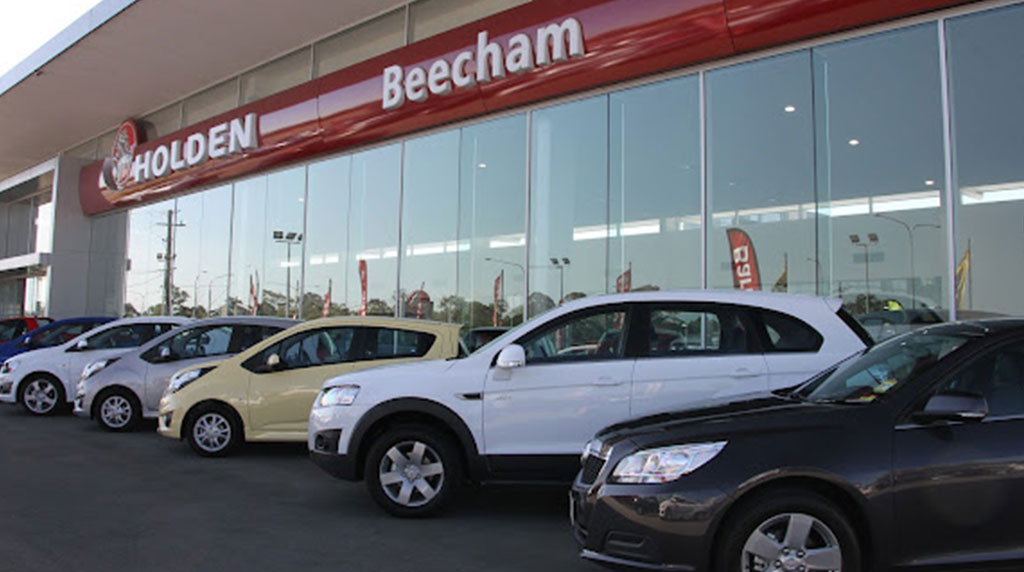GENERAL Motors has just suffered a reversal in court in its long-running defence of a class action by 11 former Holden dealers who are seeking damages for allegedly breaching their dealer agreements when GM pulled the Holden brand from Australia in 2020.
In a recent hearing in the Supreme Court of Victoria, Associate Justice Matthews found that an offer by Holden to pay the legal costs of the lead dealer plaintiff in the class action as part of a settlement offer, was worded in such a way that it applied to paying the costs of all dealers in the class action.
This means that going into the class action trial, the plaintiff’s (the dealers’) costs incurred up to July this year were covered by Holden and that the decision by the court effectively “de-risks the litigation” for the dealers.
Associate Justice Matthews also knocked back a move by Holden to keep secret the amount of a settlement it made to the lead dealer plaintiff who was part of the class action.
Those familiar with the case say that Holden’s liability to pay the costs for all 11 dealers in the class action up to the date the offer was accepted is more than one million dollars.
At the root of the class action the dealers are seeking compensation from Holden for alleged breach of contract when GM retired the Holden brand and Holden was unable to supply dealers with cars to sell to the public.
The dealers are alleging that Holden was obliged under their dealer agreements to supply the dealers with Holden vehicles for five years from 2018.
By ceasing to supply Holden vehicles just two years into the five-year agreement, the dealers are claiming compensation for allegedly breaching the terms of the Holden supply contract.
As part of the class action by the 11 Holden dealers, Beecham Motors based in Caboolture, Qld, was appointed the lead plaintiff on the case which is being run by HWL Ebsworth Lawyers.
On July 14 this year Holden and Beecham Motors reached a settlement of Beecham’s legal action with a payout which those familiar with the matter say was “close to triple” the amount originally offered to Beecham Motors as part of Holden’s original offer to all Holden dealers when GM first announced the Holden brand was being retired.
The final settlement amount for Beechams is said to be several million dollars.
Insiders say that the offer to Beechams was so generous there was little hesitation in accepting it. Despite the settlement with Beecham’s, its role as the lead plaintiff would also continue because much of the class action’s case was based on evidence from Beecham Motors.
But, included in the offer from Holden to Beecham Motors, was an agreement to pay the legal fees incurred up to the date of the acceptance of the offer; that Holden would pay “the plaintiff’s costs of the proceeding”.
Holden claimed that meant it would be paying Beecham Motors costs up to the time of the Beecham settlement, not the costs of all 11 parties to the action.
But the dealers claimed the offer on costs meant that Holden had agreed in its offer to Beecham Motors that it would pay the costs of all 11 dealers. The matter was heard by the Supreme Court of Victoria in September 2023.
Holden sought to have clarified just which parties in the class action were to be included in the agreement by Holden to pay the legal costs – Beecham Motors only or all 11 dealers.
The dealer’s legal team put to the court that Holden was a “sophisticated litigant” which could have made the offer in relation to costs “on whatever terms it liked”.
Associate Justice Matthews agreed with the dealers that if Holden had only meant to pay the costs of Beecham Motors it should have been more specific in the terms of the offer.
The judge’s view was that if she found for Holden it “would be to impermissibly re-write the parties’ bargain in circumstances where the relevant provision is not ambiguous”.
She said that Holden had submitted to the court “three proposed iterations of a costs order from the defendant” and that she accepted the dealers’ submission that “the defendant’s changing position and lack of clarity shows that the defendant is trying to rewrite the settlement agreement on terms more favourable to it”.
Associate Justice Matthews said: “I accept the plaintiff’s (dealers’) submission that the reasonable person observing the settlement agreement would have thought that by the offer the defendant (Holden) was offering to pay the plaintiff’s costs of the proceeding up to and including 14 July 2023, not 1/11th of the costs charged by HWL Ebsworth to that date or the amount that the plaintiff had paid its lawyers.
She said: “The court is entitled to assume that the defendant (Holden) took legal advice prior to making the offer and that it considered the legal and commercial ramifications of the offer before making it. 
“The defendant (Holden) may have had sound reasons, including sound commercial reasons, for making the offer in the terms that it did. For example, the defendant may have thought the costs aspect of the offer would make it more attractive to the plaintiff (the dealers).
“I accept the plaintiff’s submission that the court should assume that the defendant (Holden) calibrated its offer to achieve its purpose. She went on to say that “the defendant was free to offer to settle the plaintiff’s individual claim on any terms it saw fit, which it did”.
Holden, also in September, applied to the court to make an order that the terms of the settlement be confidential.
On the confidential matter, Holden submitted that if the settlement amount with Beechams was made public it would compromise its position in any further settlement discussions it might have with other parties to the dispute and would also compromise its position in any other forthcoming court actions.
Associate Justice Matthews dismissed the confidentiality application.
She said: “In my view, (confidentiality) could only be justified if it were in the interests of the administration of justice to do so. Here, I do not think that those interests are served by granting the Confidentiality Application. There is no risk, actual or apprehended, insofar as a trial judge’s ability to fairly deal with the trial of the common questions is concerned.
“While there may be some risks for the defendant insofar as the other proceedings it is involved in with other dealers, any such risk was a matter for it, not the court, to safeguard.
“If the defendant was concerned as to its bargaining position in that regard it could have included obligations of confidence in the terms of the offer,” she said.
Footnote: The trial of the Holden class action concluded last Friday













 Read More: Related articles
Read More: Related articles

